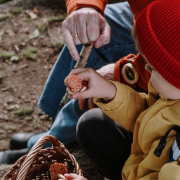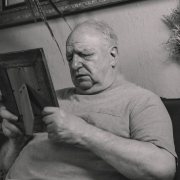How do I remember departed loved ones on Thanksgiving?
Some parts of the world are celebrating Thanksgiving. This holiday is seen as a time of gratitude, reflection, and togetherness. As we gather with family and friends to celebrate the many blessings in our lives, let’s not forget to look back and celebrate our past triumphs, too. Let’s also use this holiday as an opportunity to remember and honor our departed loved ones.
Usually, the empty chairs at the table may evoke feelings of sadness. But it doesn’t always have to be this way! By incorporating memorial traditions into your Thanksgiving celebration, you can receive comfort. At the same time, you can ensure that those who have passed away, whether the funeral services happened a week or years ago, are never forgotten. Let’s explore various ways to remember our departed loved ones on Thanksgiving.
Setting a Place at the Table
One meaningful way to remember departed loved ones on Thanksgiving is to set a place at the table in their honor. This tradition symbolizes that we choose to make them a part of the celebration, even if they are no longer with us physically. It’s a practice that may be very comforting, especially for those who have recently lost a loved one and are grappling to come to terms with it. To get this done, consider the following:
- Use a special place setting: Designate a specific plate, utensils, and a glass for your departed loved one. You can also include a small photo frame with their picture.
- Light a candle: Place a candle at their setting and light it during the meal. It is a beautiful reminder of their presence and the light they brought into your life.
- Share a moment of silence: Before the meal begins, take a moment of silence to remember your loved one. Reflect on the happy memories and the impact they had on your life.
Creating a Memory Table
Visiting the cemetery is not the only way to remember your departed loved ones on Thanksgiving. Another touching way is by setting up a separate memory table. This can be a dedicated space where you display photographs, souvenirs, and other items that remind you of your loved one. Here’s how you can create a memory table:
- Choose a location: Select a prominent location for the memory table in your dining area or living room.
- Gather meaningful items: Collect photographs, letters, and items significant to your departed loved one. These could include their favorite book, a piece of jewelry, or a hobby-related item.
- Arrange with care: Arrange the items on the table thoughtfully so they’ll look aesthetically pleasing. Use a tablecloth or runner to make it eye-catching.
- Encourage sharing: Let your guests know that the memory table is there for them to explore and share their own memories or stories about your loved one. They can also contribute and bring in their own trinkets.
Sharing Stories and Memories
Many people associate Thanksgiving as a time for sharing and caring. So, what better way to remember your departed loved ones than by sharing stories and memories about them? Here’s how to incorporate this tradition into your celebration:
- Storytelling circle: After the meal, gather everyone in a circle and invite each person to share a favorite memory or story about your departed loved one. This can be a heartwarming way to keep their memory alive and connect with your family members on a deeper level.
- Memory jar: Place a jar on the table with small pieces of paper and pens. Encourage guests to write down memories or things they are grateful for regarding your loved one. You can read these notes aloud during dessert.
- Create a scrapbook: Consider creating one dedicated to your departed loved one. Ask family members to contribute photos, letters, and anecdotes. This scrapbook can be a cherished keepsake and a way to ensure their memory lives on for generations.
Cook Their Favorite Dish
Food and festivities come together. So, it’s no surprise that food is central to Thanksgiving. Incorporating your departed loved one’s favorite dish into the meal can be a beautiful tribute. Whether it’s their famous stuffing recipe or a beloved dessert, cooking their favorite dish can evoke fond memories and create a sense of connection. As you prepare and enjoy the dish, you can share stories about why it was their favorite and the joy it brought them.
Thanksgiving is a time to express gratitude and cherish the presence of loved ones. While we may miss those who have passed, incorporating memorial traditions into the holiday can provide solace and help us keep their memory alive. These meaningful gestures ensure that our departed loved ones remain a part of our Thanksgiving celebrations. By embracing these traditions, we can find comfort in knowing that their love and legacy continue to be a cherished part of our lives, even if they’re absent. This Thanksgiving, let us remember and honor those we have lost with love and gratitude through meaningful traditions.












